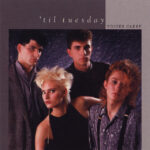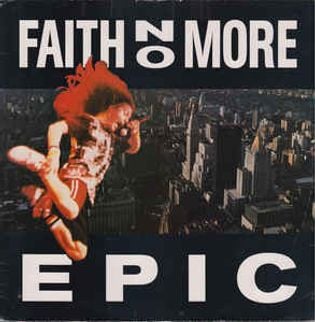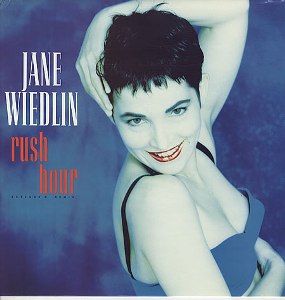 When “Voices Carry” hit the airwaves in 1985, it was more than just a shimmering slice of new wave—it was a cry from the quiet corners of American relationships. Till Tuesday’s breakout hit combined synth-pop polish with emotional rawness, wrapped around Aimee Mann’s haunting voice and defiant presence. At a time when MTV ruled culture and image often trumped substance, “Voices Carry” stood out as something deeper—a song that used glossy production to mask a message about repression, control, and the yearning to finally speak up.
When “Voices Carry” hit the airwaves in 1985, it was more than just a shimmering slice of new wave—it was a cry from the quiet corners of American relationships. Till Tuesday’s breakout hit combined synth-pop polish with emotional rawness, wrapped around Aimee Mann’s haunting voice and defiant presence. At a time when MTV ruled culture and image often trumped substance, “Voices Carry” stood out as something deeper—a song that used glossy production to mask a message about repression, control, and the yearning to finally speak up.
It’s one of those songs that sneaks up on you. On first listen, it sounds like a stylish heartbreak anthem with a big hook and a killer chorus. But listen closer, and you hear something aching beneath the surface—a woman fighting to be heard, trapped in a relationship where even her words are policed. It’s emotional claustrophobia set to a beat you can dance to. And in 1985, when pop music often flirted with artifice, “Voices Carry” dared to feel real.
Till Tuesday didn’t just write a catchy single—they created a mirror for the quiet battles happening behind closed doors, and in doing so, they accidentally defined an era.
The Birth of a Voice
“Voices Carry” was the debut single from Till Tuesday’s first album, also titled Voices Carry, released in 1985 on Epic Records. The band—fronted by singer-bassist Aimee Mann and rounded out by guitarist Robert Holmes, keyboardist Joey Pesce, and drummer Michael Hausman—had been building buzz around the Boston new wave scene.
Their sound drew from the icy sophistication of British post-punk but added a distinctly American emotional core. You could hear echoes of The Cars, The Motels, and Talking Heads in their angular rhythms and shiny production, but Mann’s songwriting elevated it beyond imitation. She had a knack for turning internal conflict into melody, and “Voices Carry” was her lightning strike.
The song was reportedly inspired by a real relationship in Mann’s life, though its gender dynamics became exaggerated through the recording and the music video. Originally, the lyrics were written about a woman speaking to another woman—an open expression of queer love—but the record label pushed to change the pronouns to make it heterosexual, fearing backlash in conservative mid-’80s America. Ironically, that change gave the song an even broader, more ambiguous tension: it became about control, conformity, and the quiet suppression that affects all relationships constrained by societal expectations.
A Sound Like Steel and Smoke
Musically, “Voices Carry” is a perfect distillation of 1980s production magic. The track begins with sparse, echoing keyboards and a muted drum pattern that feels both intimate and cinematic. Then Aimee Mann’s voice enters—cool, restrained, slightly detached, but with an undercurrent of defiance. She doesn’t belt; she insists.
As the song builds, layers of reverb and synth wash over her vocals. There’s a tension between the instrumentation and the emotion: the glossy, mechanical texture of the music contrasts with the raw pain in Mann’s delivery. By the time the chorus hits—“Hush, hush, keep it down now, voices carry”—it feels like a pressure cooker finally hissing.
Producer Mike Thorne (known for his work with Soft Cell and Bronski Beat) deserves huge credit here. He built an atmosphere that perfectly captured the song’s duality: control versus eruption, restraint versus freedom. The mix keeps everything tight, giving the listener the sensation of being trapped inside a sleek, mirrored room with nowhere to run.
Every note contributes to that theme of tension. The bassline moves with steady precision, like a heartbeat kept in check. The guitar work is minimal, punctuating moments with sharp accents rather than grand flourishes. Even the drums feel muted, as if the song itself is holding its breath.
Then, in the final chorus, the lid blows off. Mann’s voice soars into its most emotional moment—“He said shut up! He said shut up! Oh God, can’t you keep it down?”—and the song suddenly becomes cathartic. It’s a cry for freedom disguised as pop perfection.
The Video That Spoke Louder Than Words
If the song’s sound made people lean in, the music video made them listen. Directed by D.J. Webster, the video for “Voices Carry” became one of the most iconic of the MTV era and turned Aimee Mann into an instant star.
The narrative follows Mann as a woman in a controlling relationship with an upper-class man who tries to mold her into his idea of perfection. He disapproves of her punkish appearance, her independence, and, symbolically, her voice. The video mirrors the song’s lyrics, showing her being constantly silenced and corrected until the climactic moment in an opera house, where she finally stands up and belts the chorus aloud for everyone to hear.
That ending—the image of Aimee Mann defiantly singing “He said shut up!” while her boyfriend seethes beside her—was a revolutionary moment for 1980s pop culture. It gave the song’s emotional subtext a visual explosion. Women across the country saw themselves in that moment, whether they were dealing with romantic oppression, workplace silencing, or cultural expectations. MTV played the video endlessly, and its mix of fashion, rebellion, and female autonomy became an instant calling card for the decade.
The power of that visual cannot be overstated. At a time when most music videos were focused on glamour and fantasy, “Voices Carry” told a story. It gave emotional weight to the glossy surfaces of the era and hinted that beneath every hair-sprayed exterior, there was a real human being trying to break free.
Aimee Mann: The Reluctant Pop Star
Aimee Mann never fit the mold of an ’80s pop star, and that’s exactly what made her unforgettable. Tall, striking, with sharp cheekbones and a cool, distant demeanor, she became an unlikely MTV icon. But behind that detached exterior was a songwriter of rare depth.
Mann’s lyrics in “Voices Carry” are deceptively simple. The verses describe everyday moments—“In the dark, I like to read his mind / But I’m frightened of the things I might find.” These are the words of someone living in emotional paralysis, second-guessing their own instincts to keep the peace. The chorus, though, breaks that cycle. “Hush, hush, keep it down now,” he demands—but the song itself refuses to comply.
It’s a clever paradox: a song about silence that made noise across the world.
Mann’s relationship with fame after the song’s success was complicated. Till Tuesday released two more albums—Welcome Home (1986) and Everything’s Different Now (1988)—before splitting, and Aimee went on to a critically acclaimed solo career. But “Voices Carry” remained both a blessing and a ghost. She’s admitted in interviews that she has mixed feelings about it—it made her famous, but it also pigeonholed her as an ’80s relic, even though her later songwriting proved she was anything but.
Still, it’s impossible to deny how much of her future brilliance can be traced back to this song. The emotional intelligence, the poetic precision, the refusal to oversimplify pain—it’s all right there in her 1985 masterpiece.
The Broader Message: Control, Gender, and Power
“Voices Carry” might have been written from personal experience, but its resonance goes far beyond one relationship. It’s about the universal experience of being silenced—by partners, by institutions, by culture.
The 1980s, for all their glitz, were still a decade steeped in traditional gender roles. The image of a woman who’s told to “keep it down” struck a deep chord. The song became an inadvertent feminist anthem, celebrated by listeners who felt its emotional truth long before anyone put words to it.
The fact that it came from a woman-led band only deepened its impact. Till Tuesday’s rise in the male-dominated rock world wasn’t just a triumph of sound—it was a symbolic act of rebellion. Every time Mann sang “He said shut up,” she was voicing what millions of women had heard in one form or another.
Even decades later, “Voices Carry” still feels relevant. Its message echoes in conversations about emotional abuse, silencing, and self-expression. You can hear its DNA in artists like Fiona Apple, St. Vincent, and Mitski—all of whom blend vulnerability with defiance, much like Mann did in 1985.
The Song’s Afterlife: A Quiet Classic
“Voices Carry” remains Till Tuesday’s signature song, and its influence has quietly rippled through pop culture ever since. It’s been covered, referenced, and reinterpreted by artists across genres, from indie folk to synth revival acts. Its haunting melody still feels modern, its chorus as unforgettable as ever.
The song has appeared in movies, TV shows, and even parodies, but it’s never lost its emotional gravity. That’s the sign of a true classic—it can be recontextualized endlessly without losing its core truth.
And while Till Tuesday never matched the commercial success of their debut single, “Voices Carry” gave them a permanent seat in the pantheon of great one-hit wonders who transcended the term. It’s a song that proves one moment of brilliance can echo for generations.
A Legacy of Volume
What makes “Voices Carry” endure isn’t just nostalgia—it’s precision. It captures a feeling that’s rarely expressed with such clarity: the ache of being unheard. Whether you interpret it as a breakup song, a feminist statement, or a broader social metaphor, it hits the same nerve.
In today’s world—where voices are constantly raised online, where everyone is talking but few are truly listening—its message feels eerily relevant. Maybe that’s why new listeners keep finding it, decades after its release.
Aimee Mann herself has evolved into one of the most respected songwriters of her generation, crafting brilliant, literate records that explore loneliness and resilience. But every time that unmistakable synth riff from “Voices Carry” starts up, you can hear the blueprint of everything she’d later become.
Conclusion: From Silence to Strength
“Voices Carry” isn’t just a song about repression—it’s about resistance. It’s about the small rebellions that happen when someone finally refuses to be quiet.
When Aimee Mann sings those final lines, she’s not just performing; she’s exorcising. You can feel the decades of societal pressure, gender expectation, and personal heartbreak collapsing into one shouted moment of freedom. That’s why, nearly forty years later, it still gives people chills.
Till Tuesday may have come and gone, but their debut single remains immortal—a reminder that the loudest revolutions sometimes begin with a whisper.


